For State of Fashion 2022 | Ways of Caring, the Fashion Open Studio also presented the work of four designers in residence. Each week featured a selection of individual projects that celebrated the Arnhem community and actively encouraged their participation.
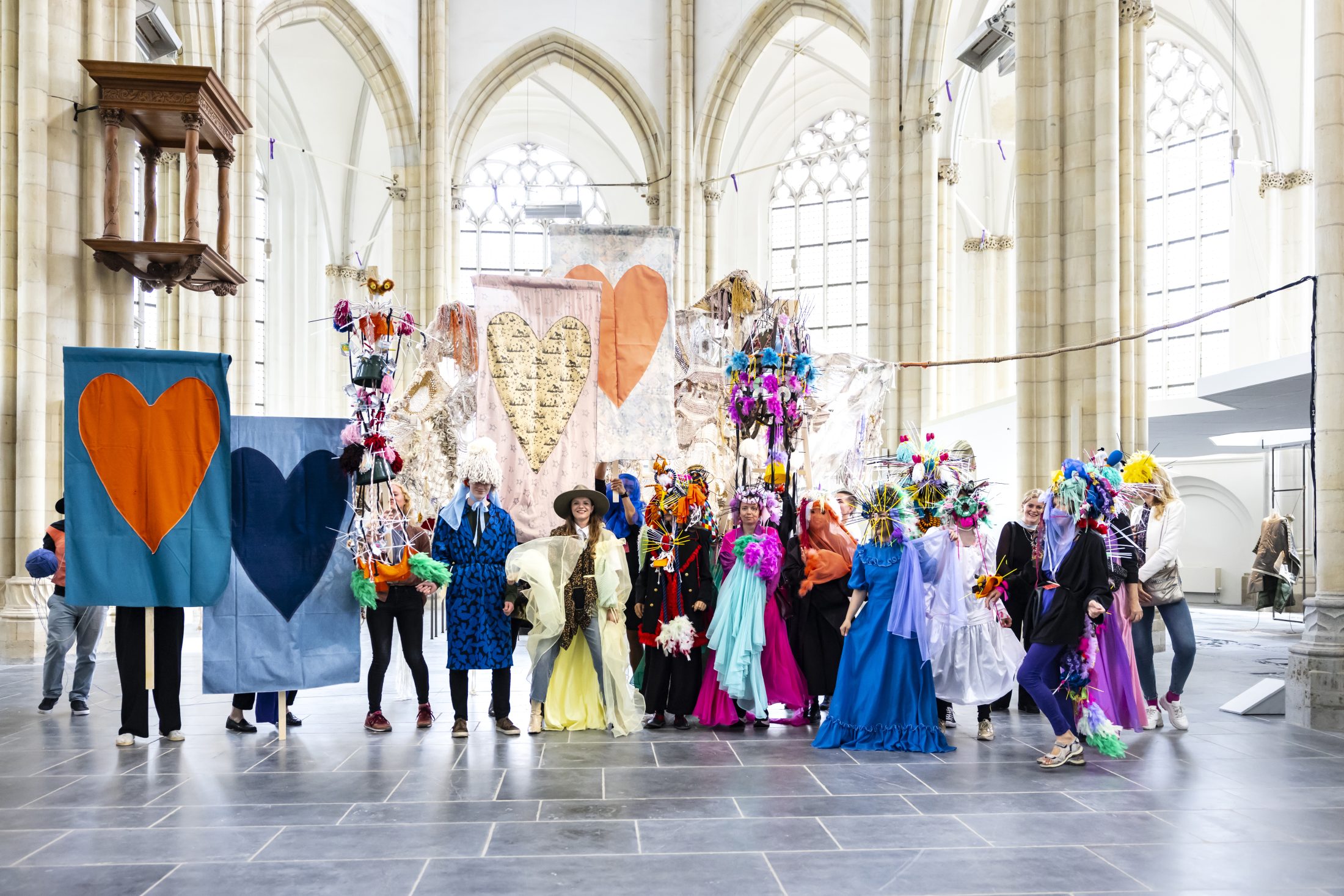
The first designer was Duran Lantink from Amsterdam, who presented The Age of Consent: a two-day workshop that took place in a nursing home for the over 80s. Together with the ‘Original Gangsters’, young students reconstructed second-hand items of clothing, and the seniors were also the ‘wearers’ of the outfits they helped to create. At the end of the workshops the students and seniors, supervised by a salsa instructor, presented the results while dancing and celebrating. The findings, selected by Duran Lantink, were displayed for the duration of the Biennale in the Showroom. It proved to be a unique opportunity to share knowledge that is often lost owing to generational differences.
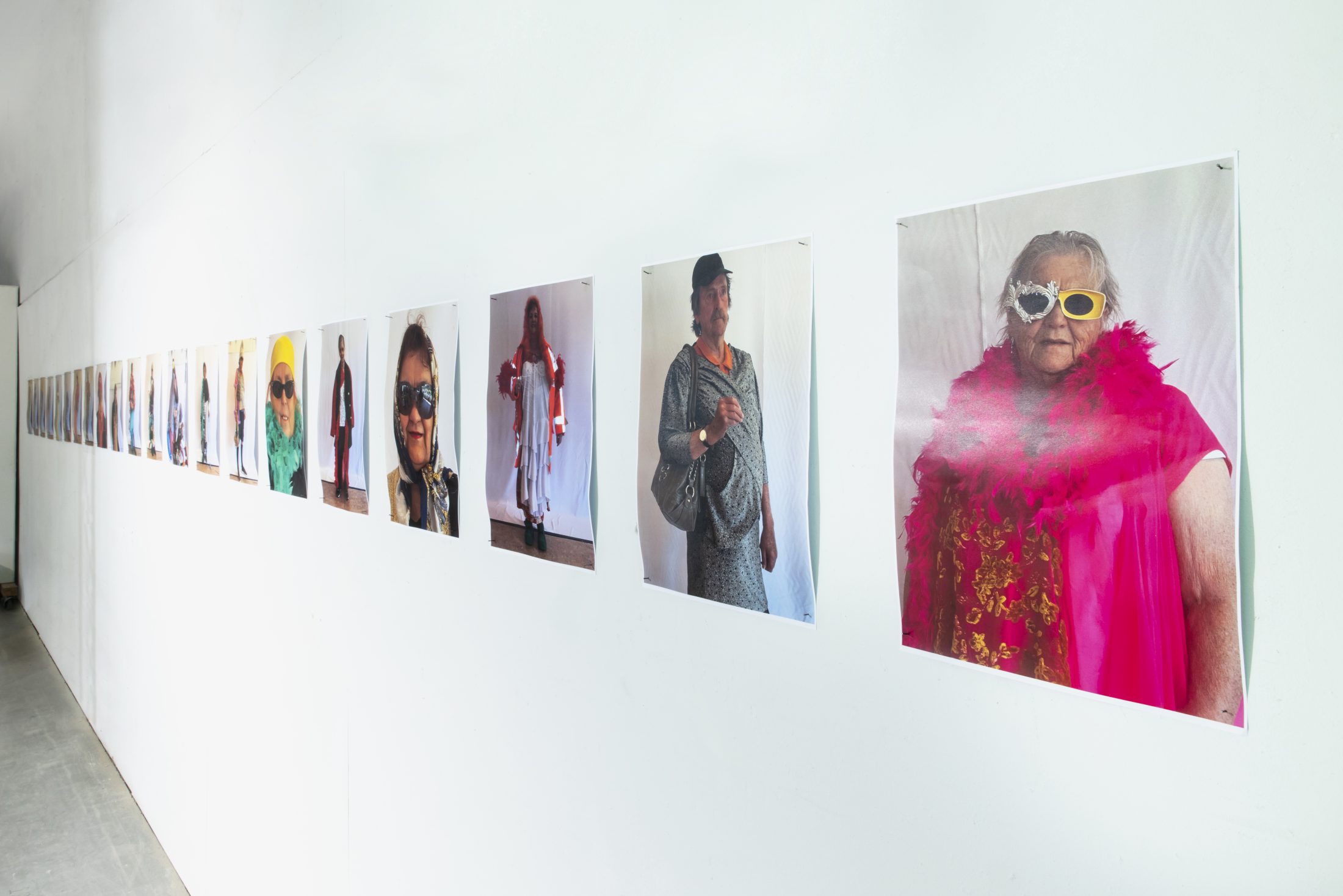
During her residency, Sindiso Khumalo, a sustainable textile designer from South Africa, showed how design and creativity can be a source of joy and beauty on the one hand, and can offer an answer to societal and environmental challenges on the other. In 2014 Sindiso Khumalo founded her label of the same name with a focus on creating sustainable textiles with a strong emphasis on telling African stories. Her designs revolve around the empowerment of women. In 2020 she won the LVMH prize and received the Green Carpet Award as an Emerging Designer. She works very closely with NGOs and small workshops to produce unique handwoven and embroidered textiles, all made by hand in Burkina Faso and South Africa.
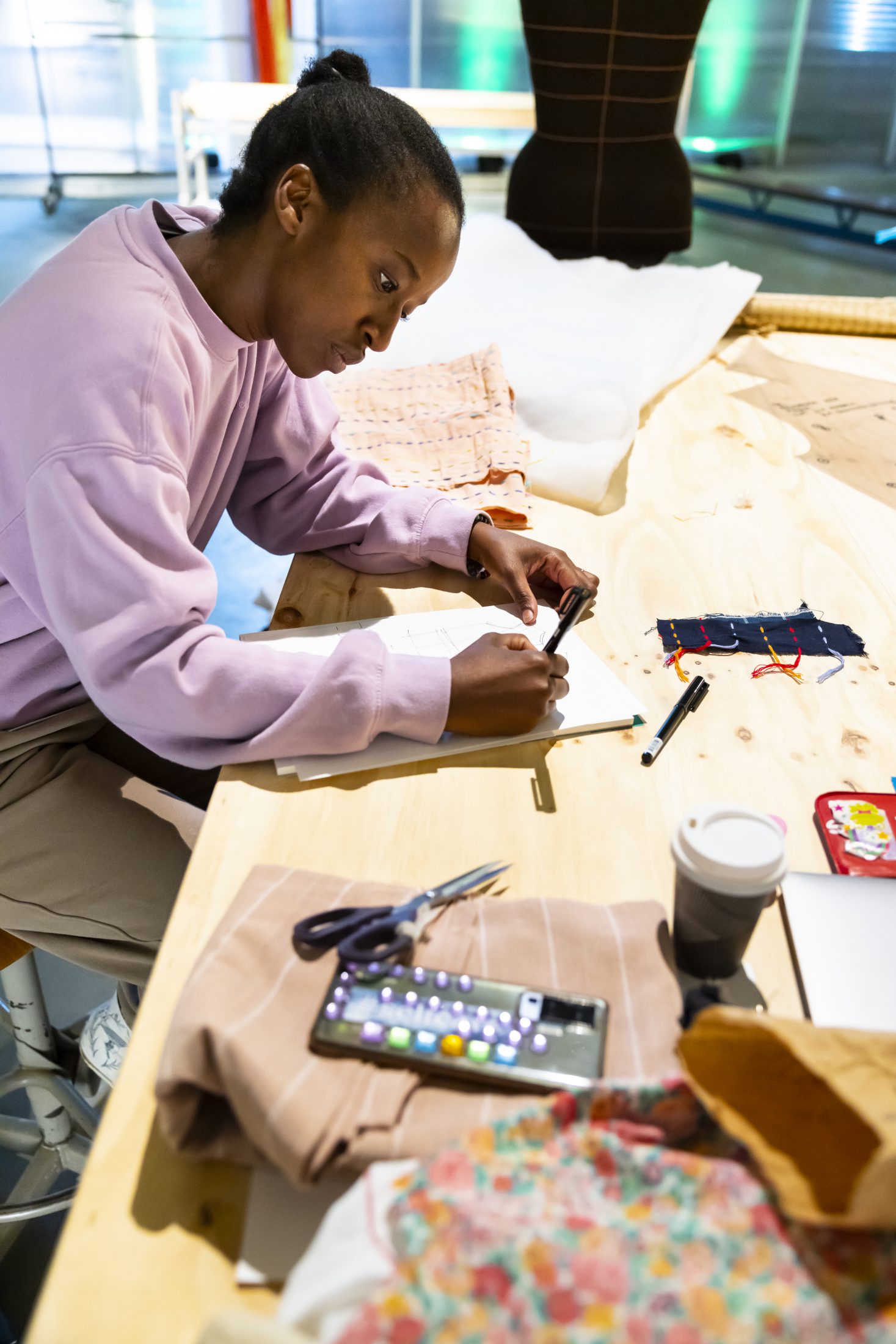

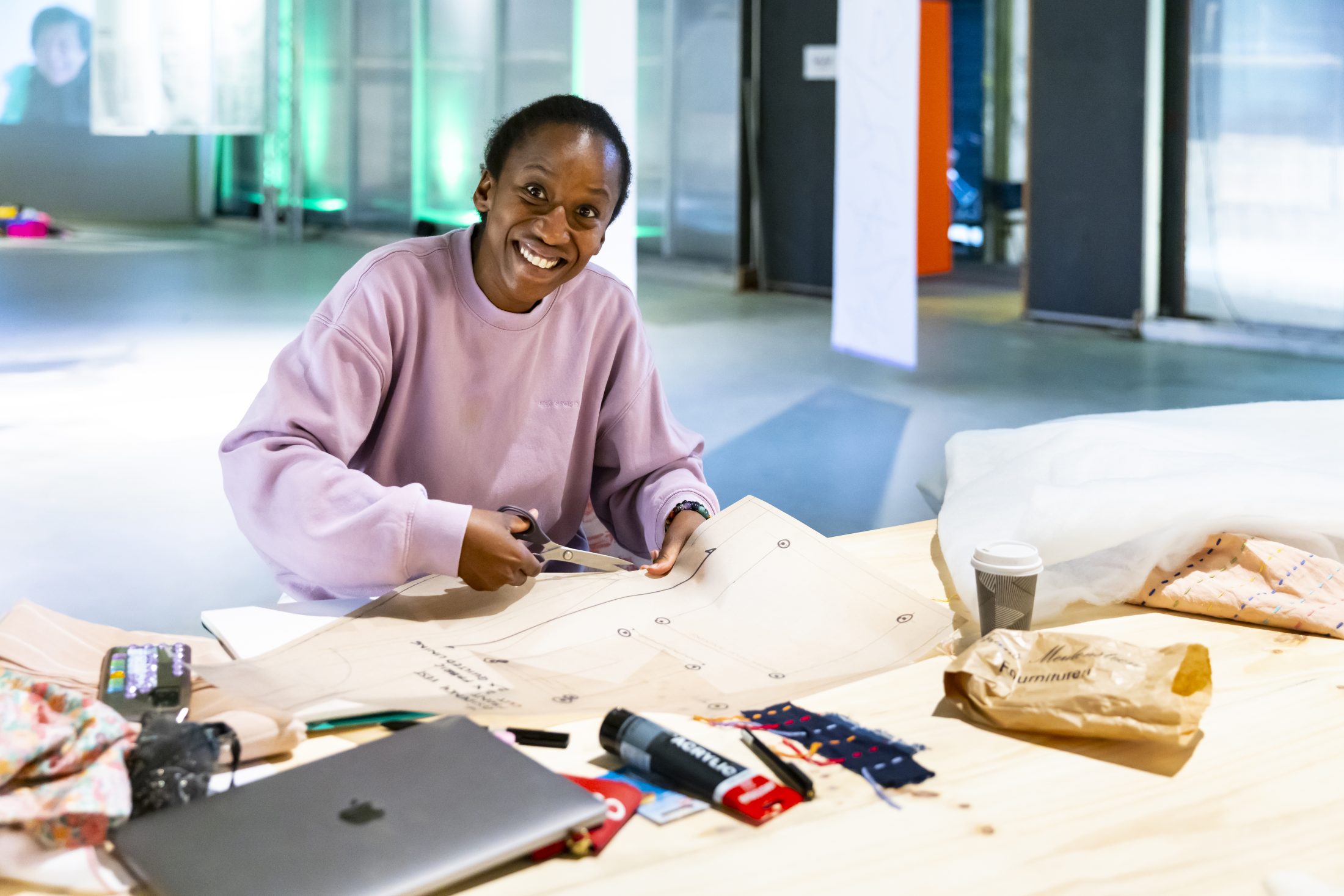
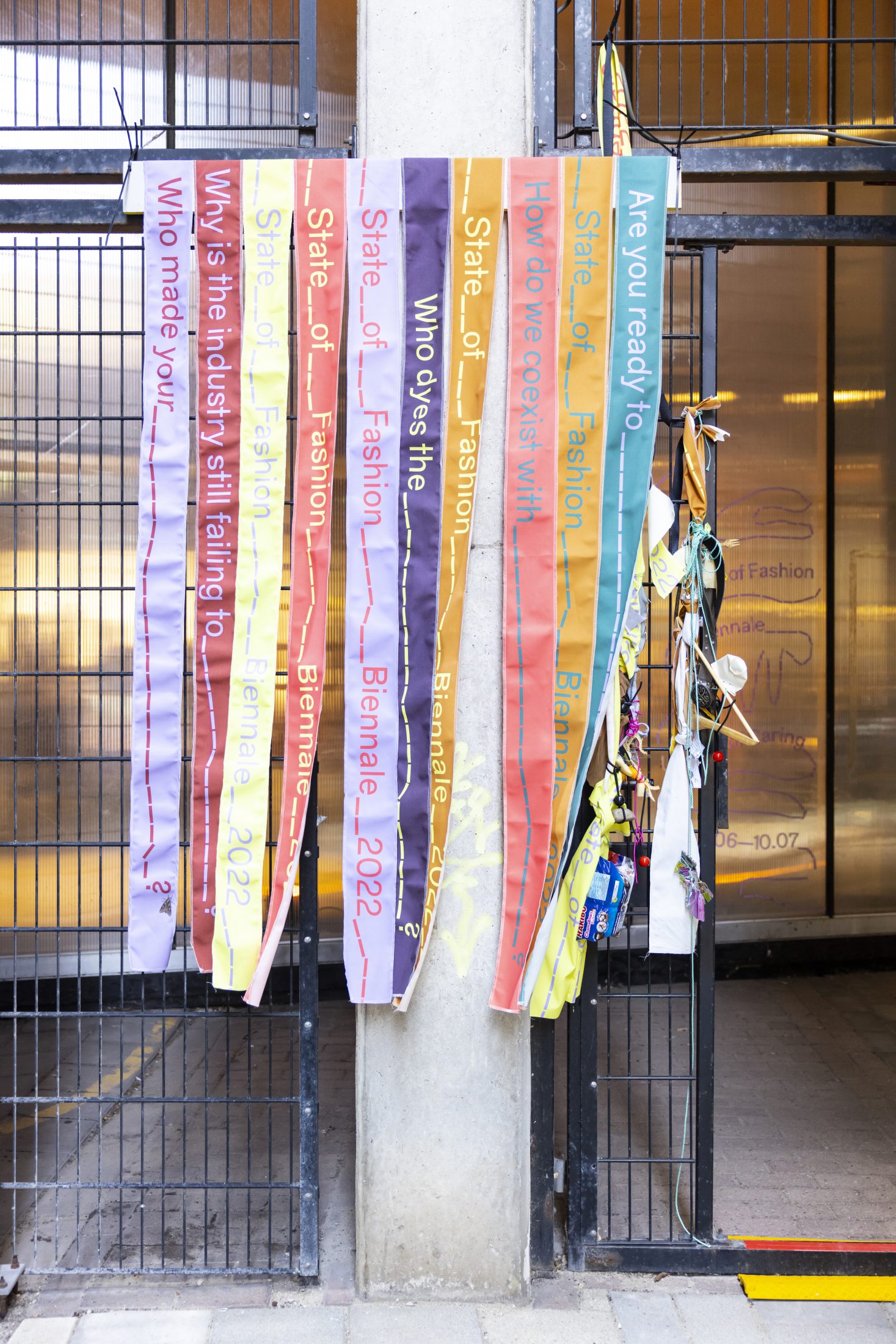
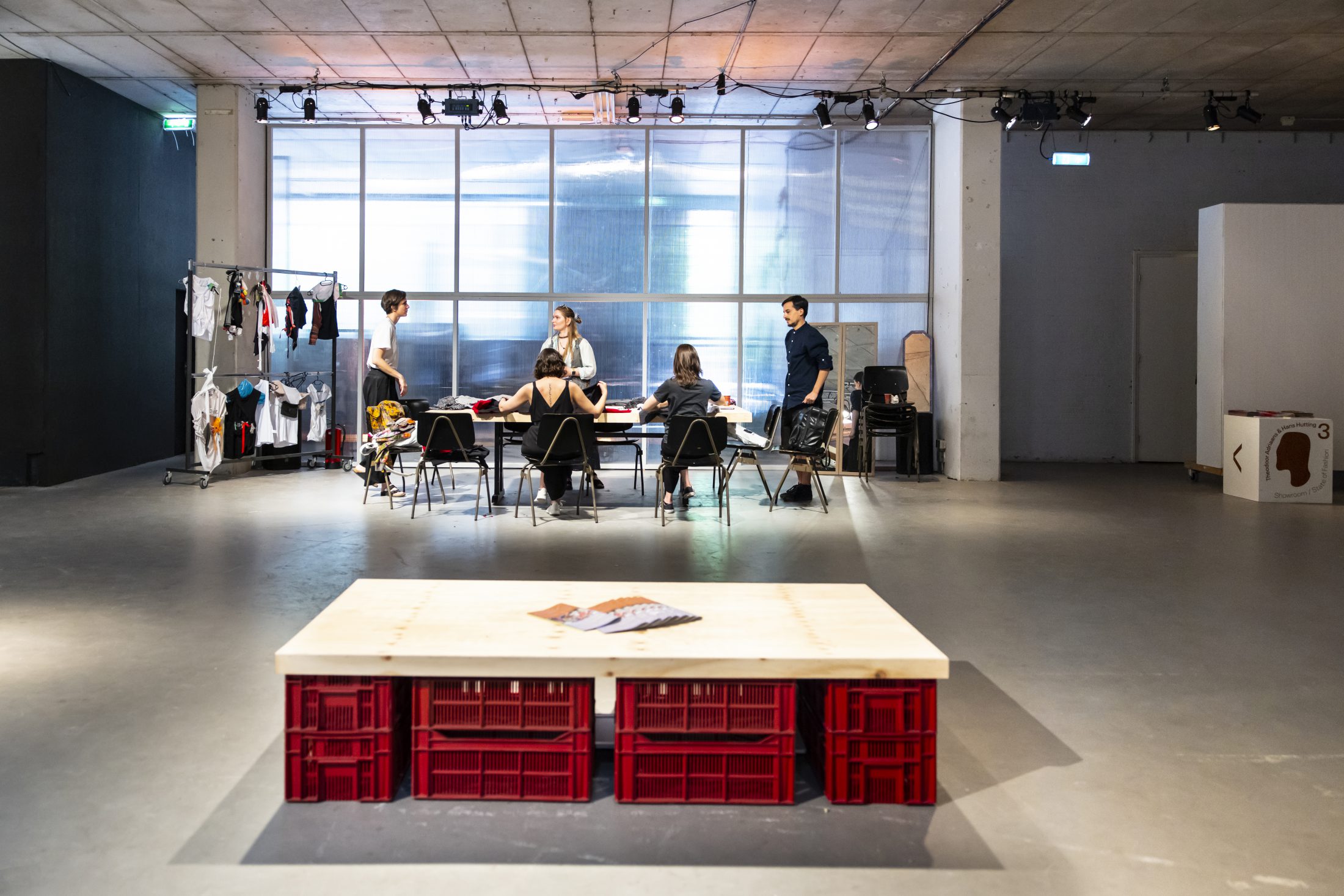
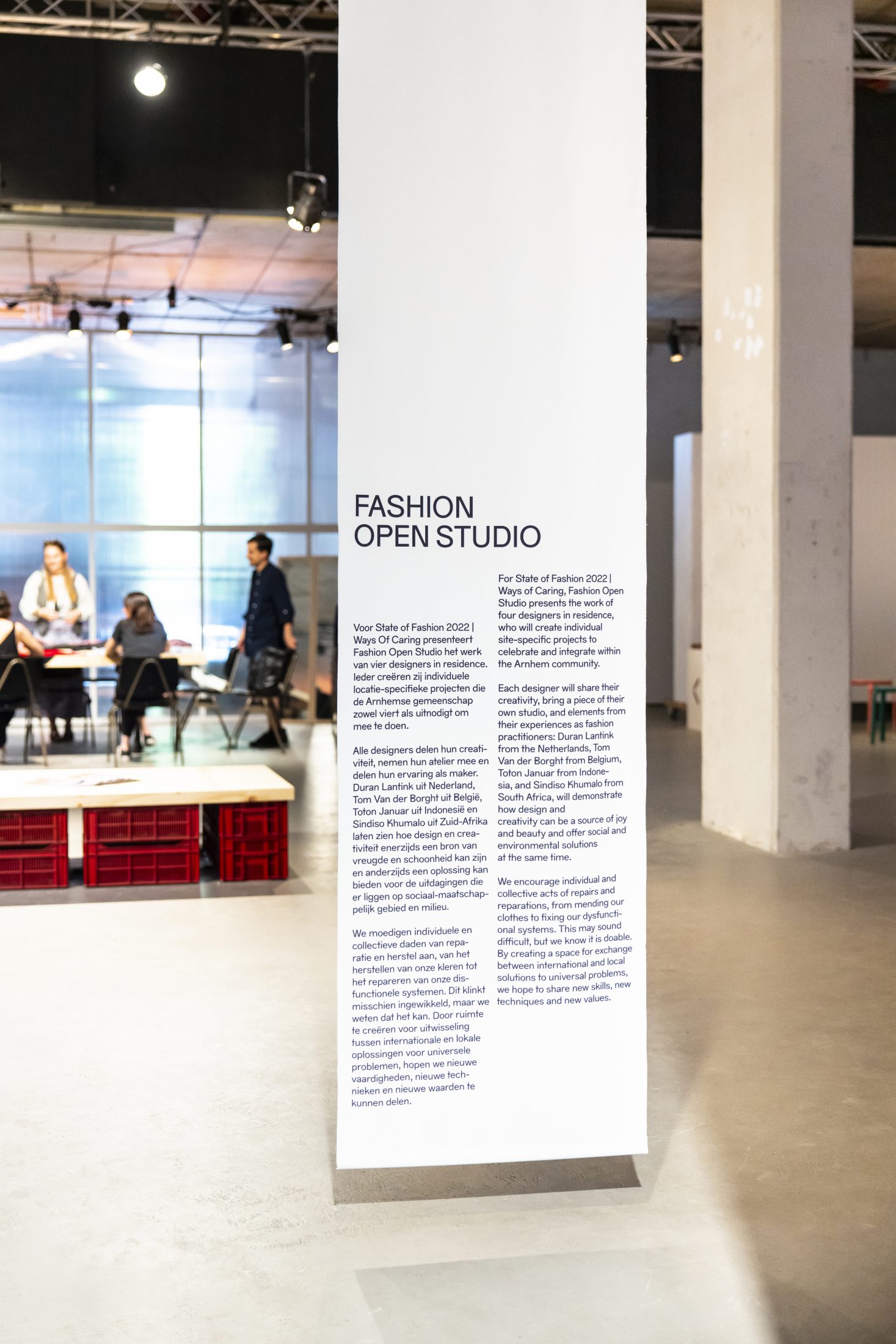
After completing his studies at the Parsons School of Design in New York in 2012, TOTON Januar, together with Haryo Balitar, founded TOTON. In 2016 the label won the Woolmark Asia Award with a collaboration with artisans from West Java. TOTON believes that the natural process of manual work, which mostly uses organic materials, should be preserved to limit the environmental damage caused by big factories and the irresponsible use and waste of chemicals.
Since 2017 TOTON has worked exclusively with an artisanal approach to recycled and upcycled materials in the collection. TOTON hopes to promote the heritage and culture of Indonesia as a way of preserving crafts for the next generation, so that they can inherit and develop it. For its Biennale residency, TOTON presented As I Stand in this Garbage Garden, an invitation to reflect on the concept of ‘newness’ in fashion. TOTON invites you to reconsider your sensory needs and, in the process, to experience something new. The main goal is to examine our behaviour: the rationale behind our purchasing of new garments.
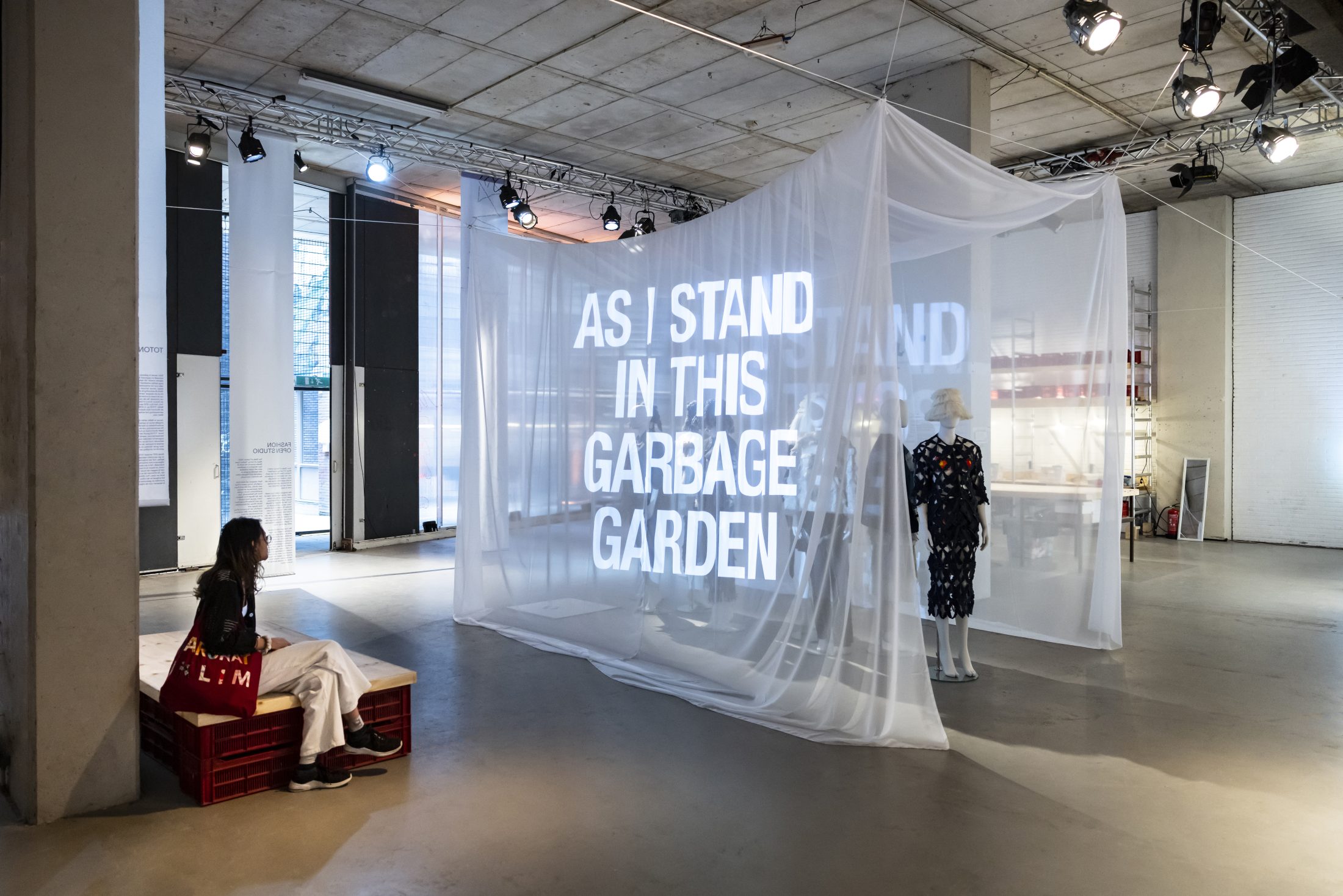
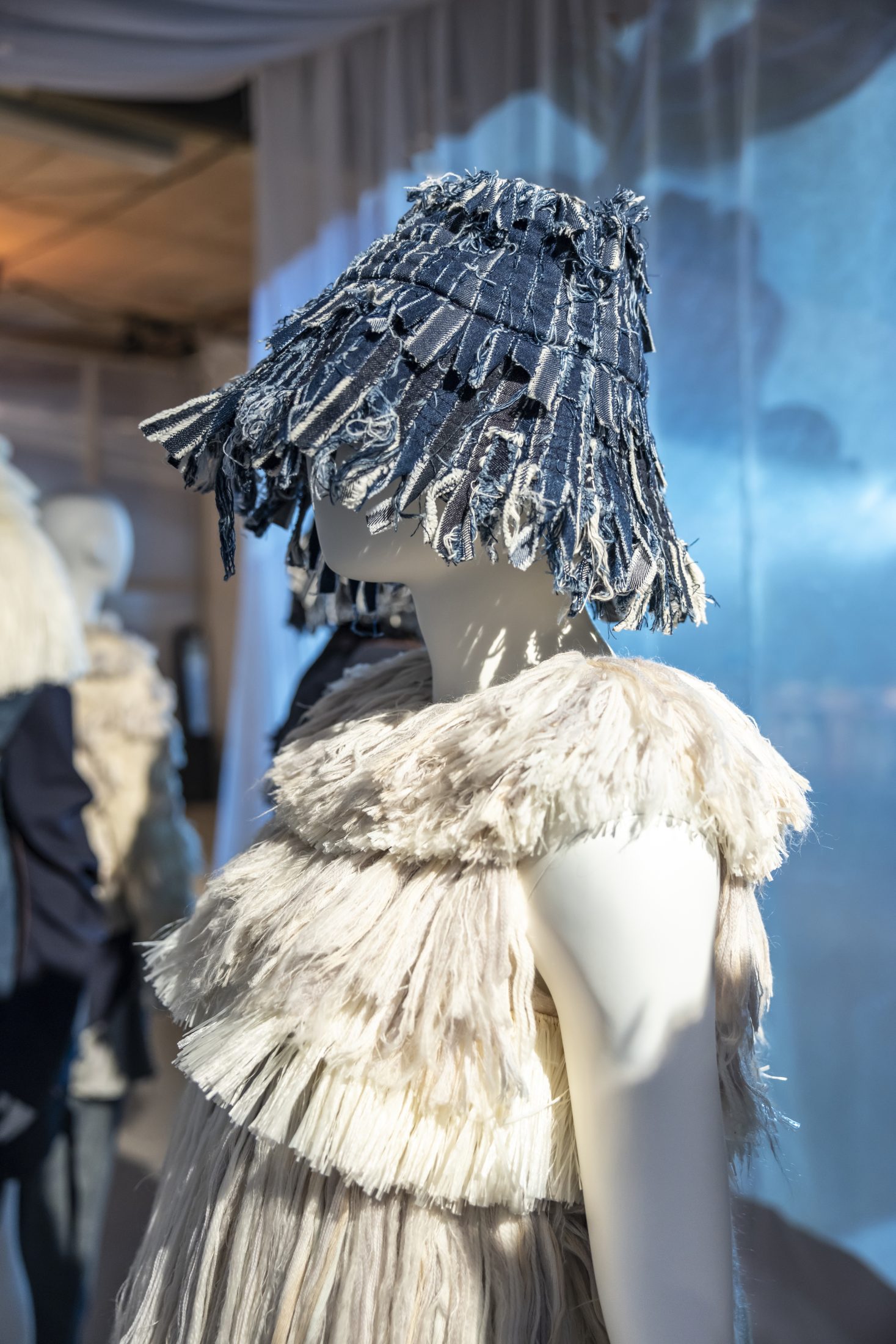
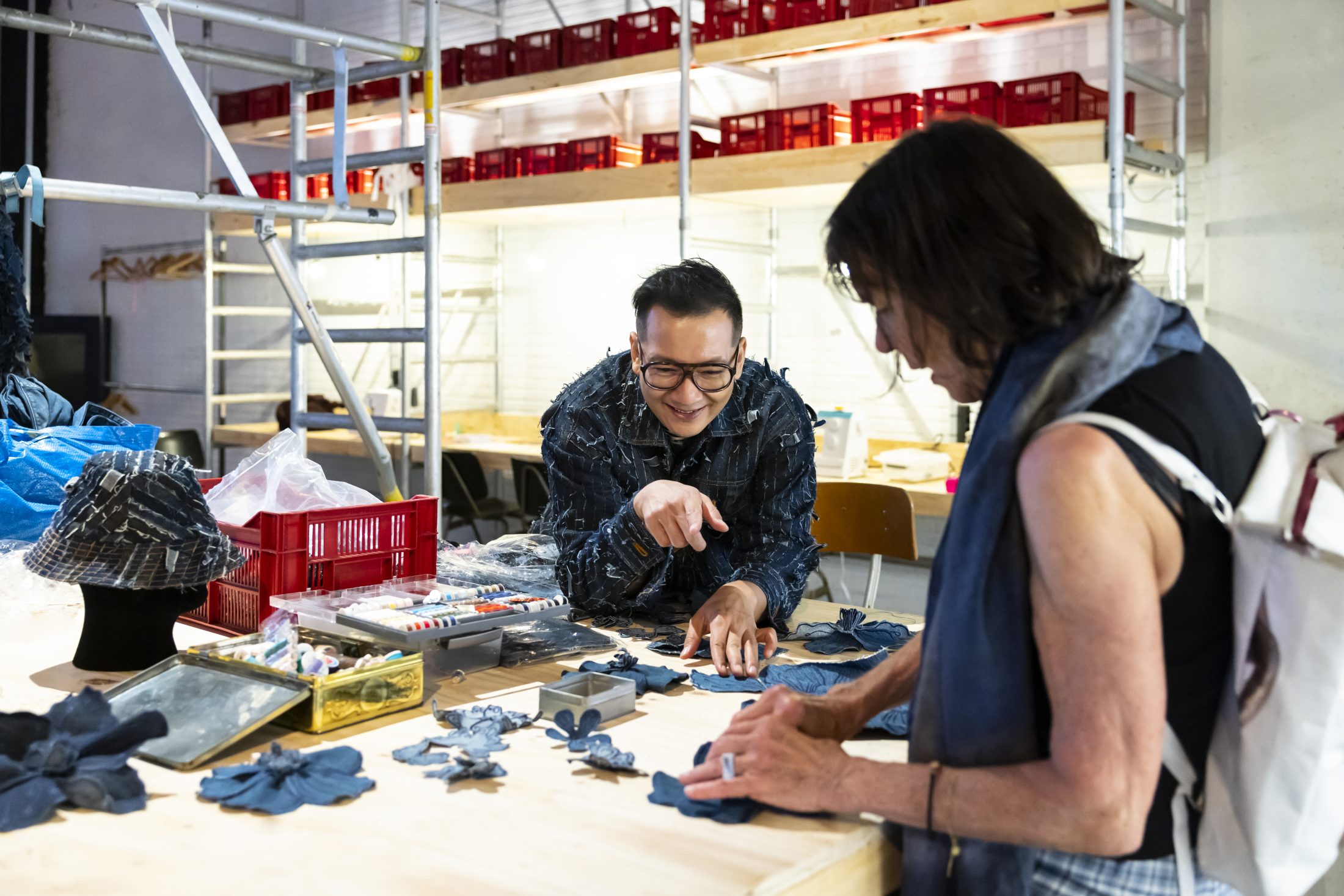
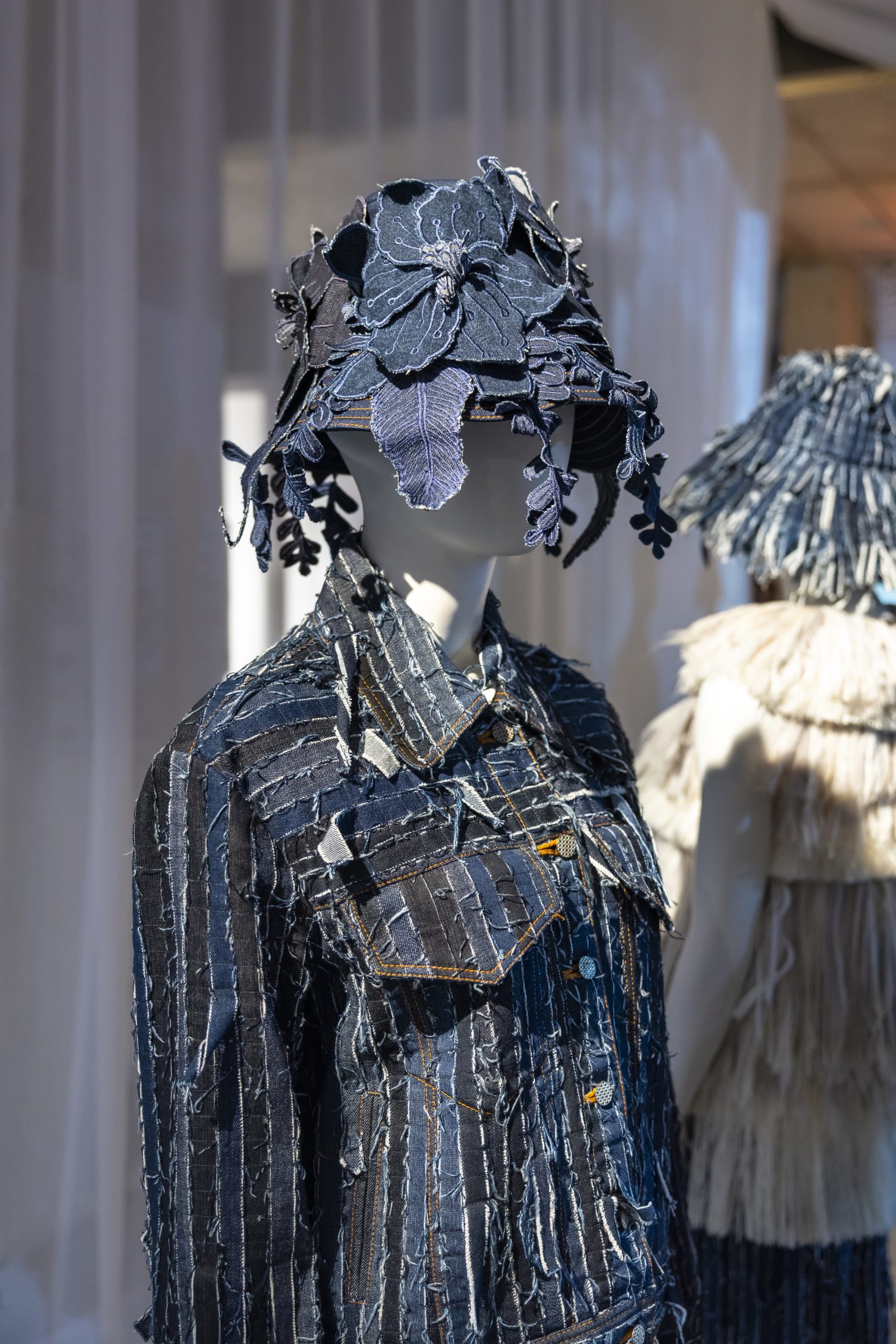
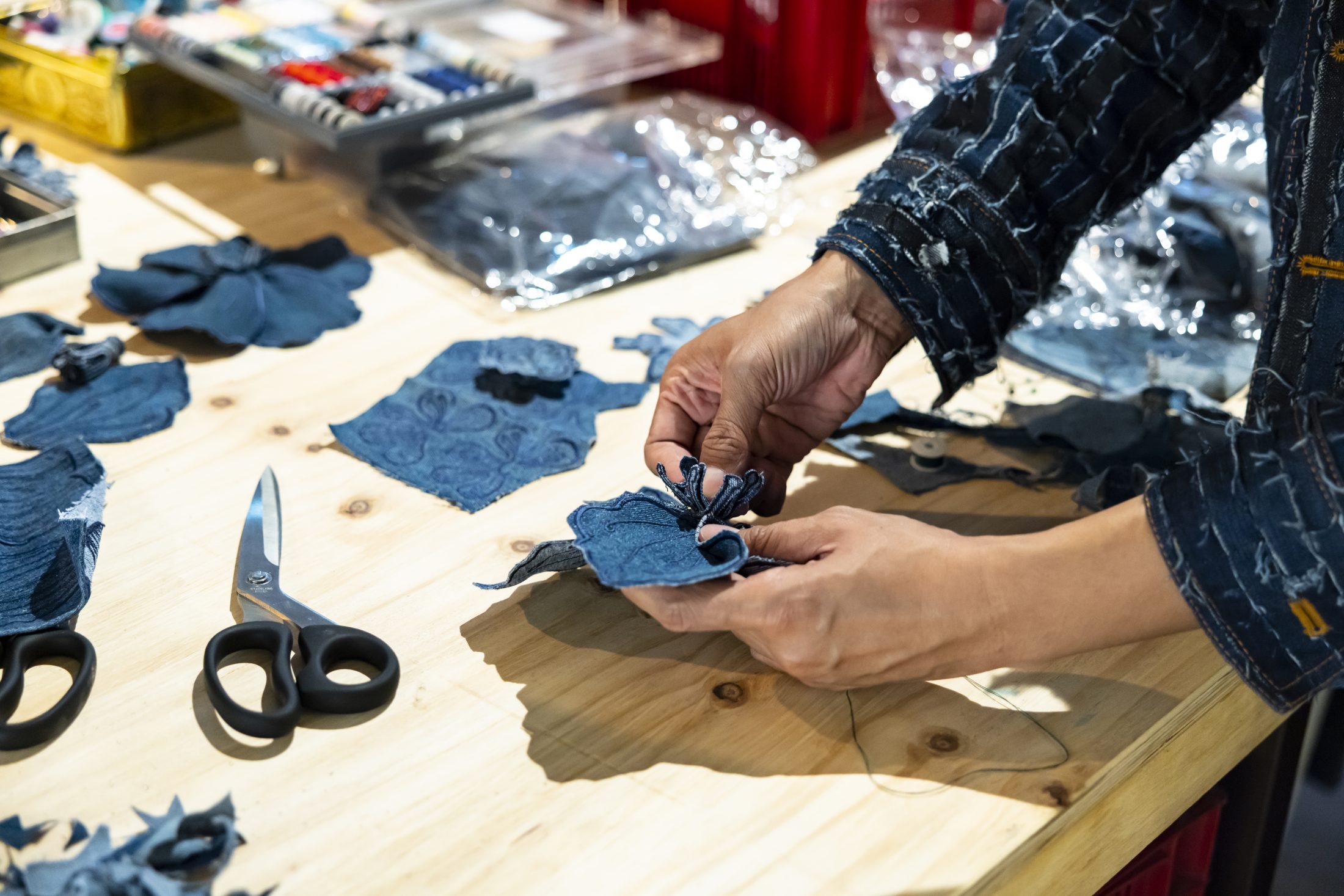
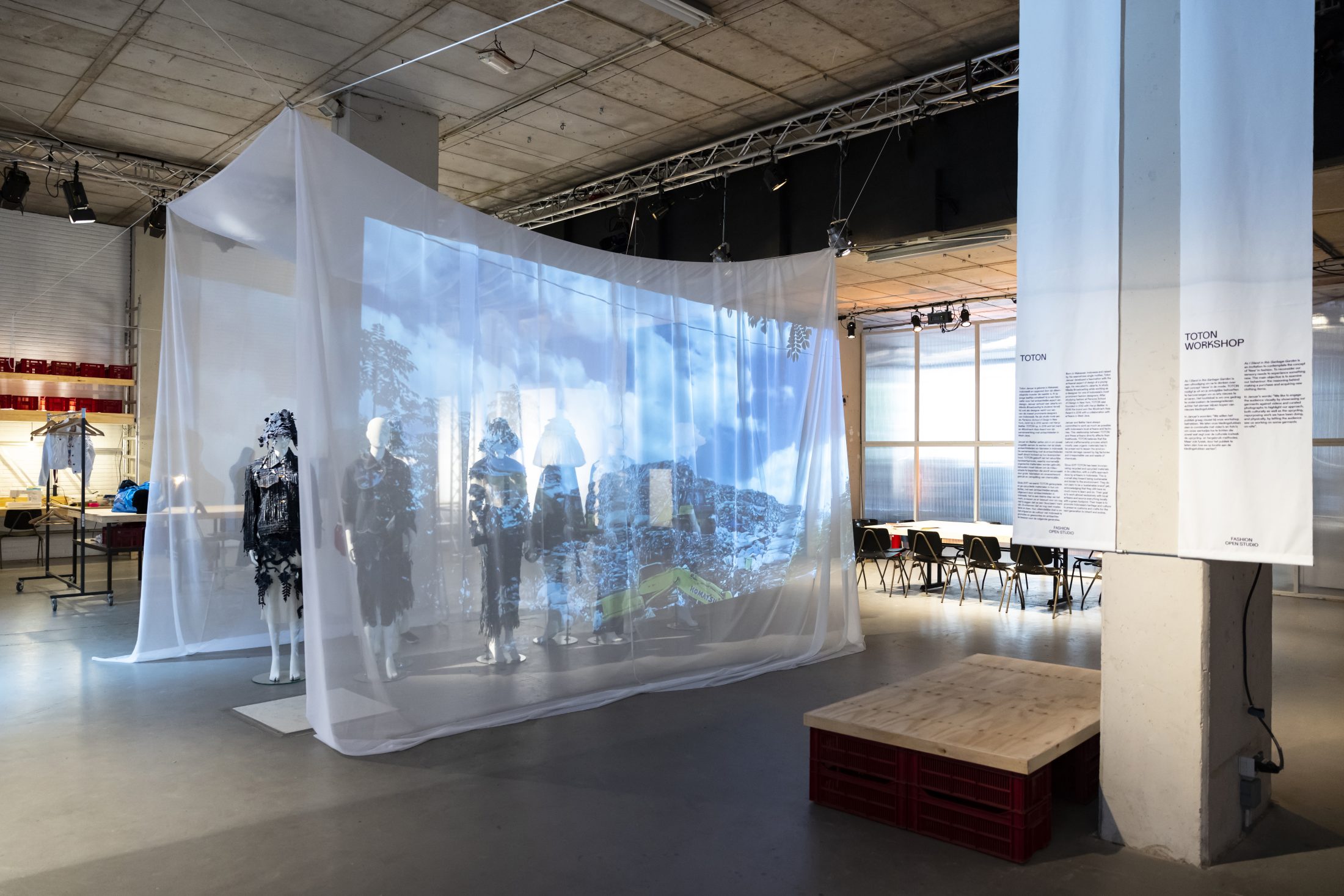
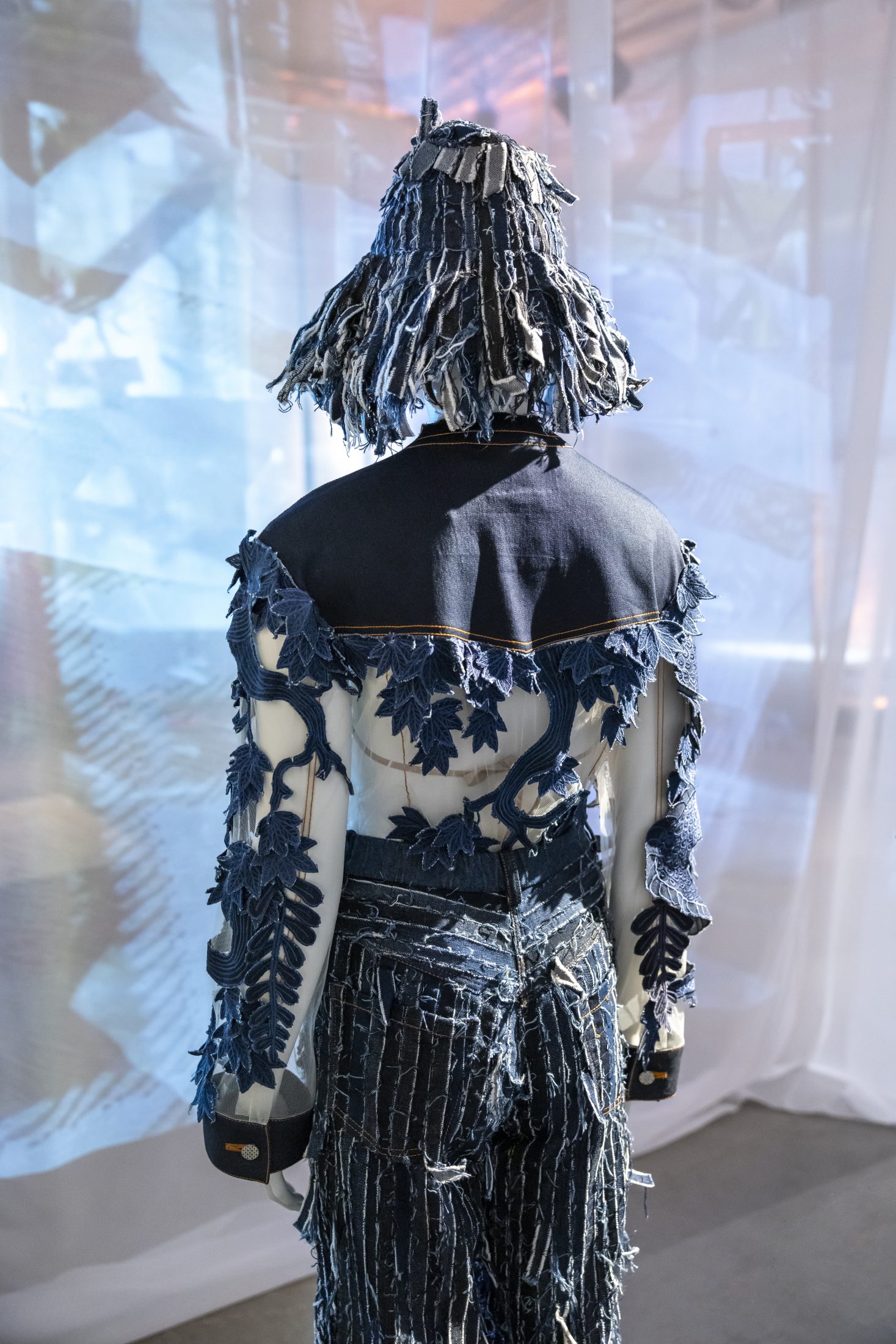
Tom Van der Borght from Belgium was the final Designer in Residence. Tom is well known internationally with his label T.VDB for his non-conformist approach and his readiness to defy rules and conventions, thereby blurring the boundaries between fashion, performance and art. In 2020, T.VDB won the prestigious Grand Prix du Jury and Prix de Publique at the International Festival de Mode in Hyeres for a collection that explored normativity, non-conformism, queer identity and contemporary rituals. Working at the intersection of fashion, textile, graphics, video, performance, scenography and visual art, he blends these disciplines to create new forms. The work of T.VDB is highly conceptual and centres on questioning prevailing values and norms.
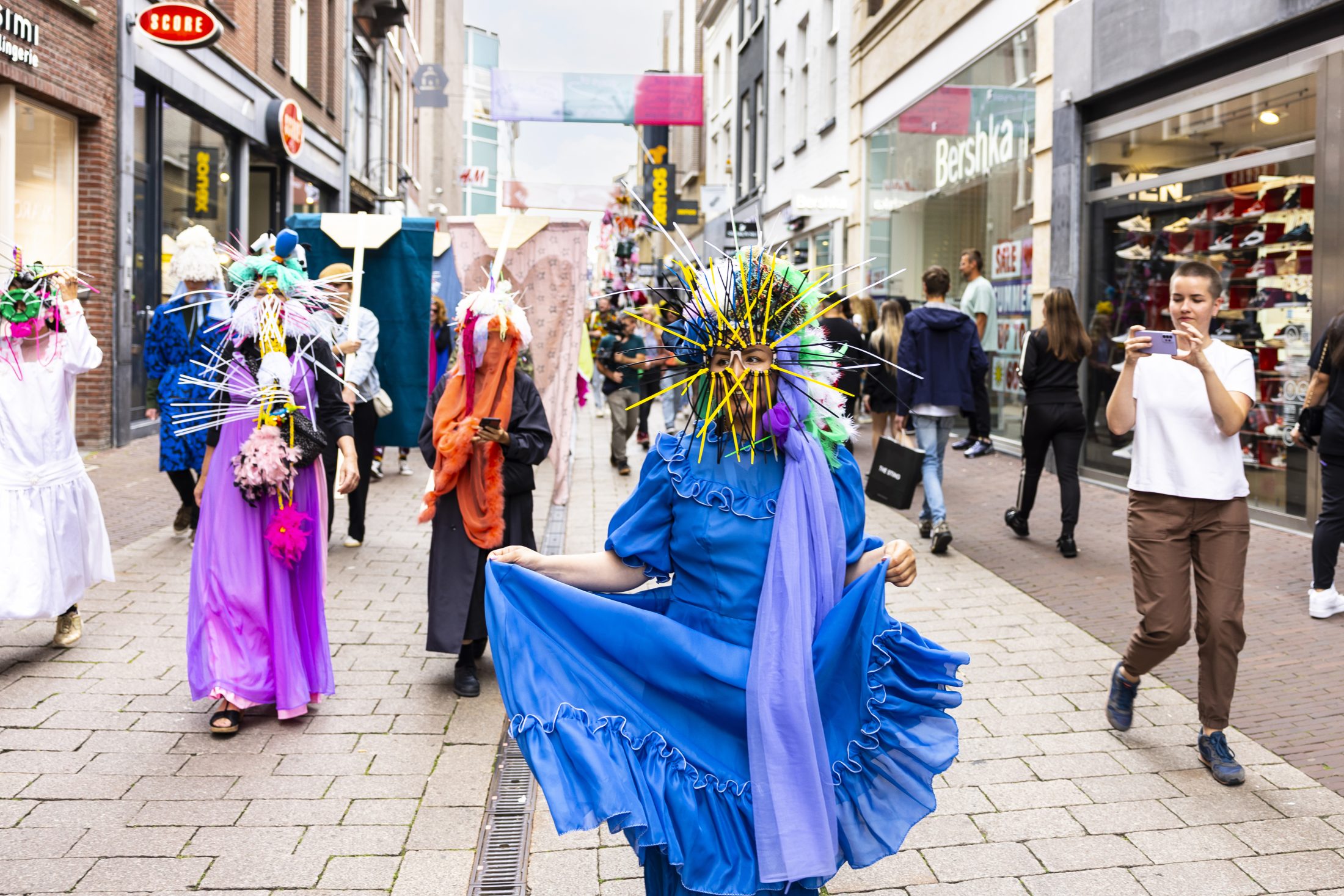

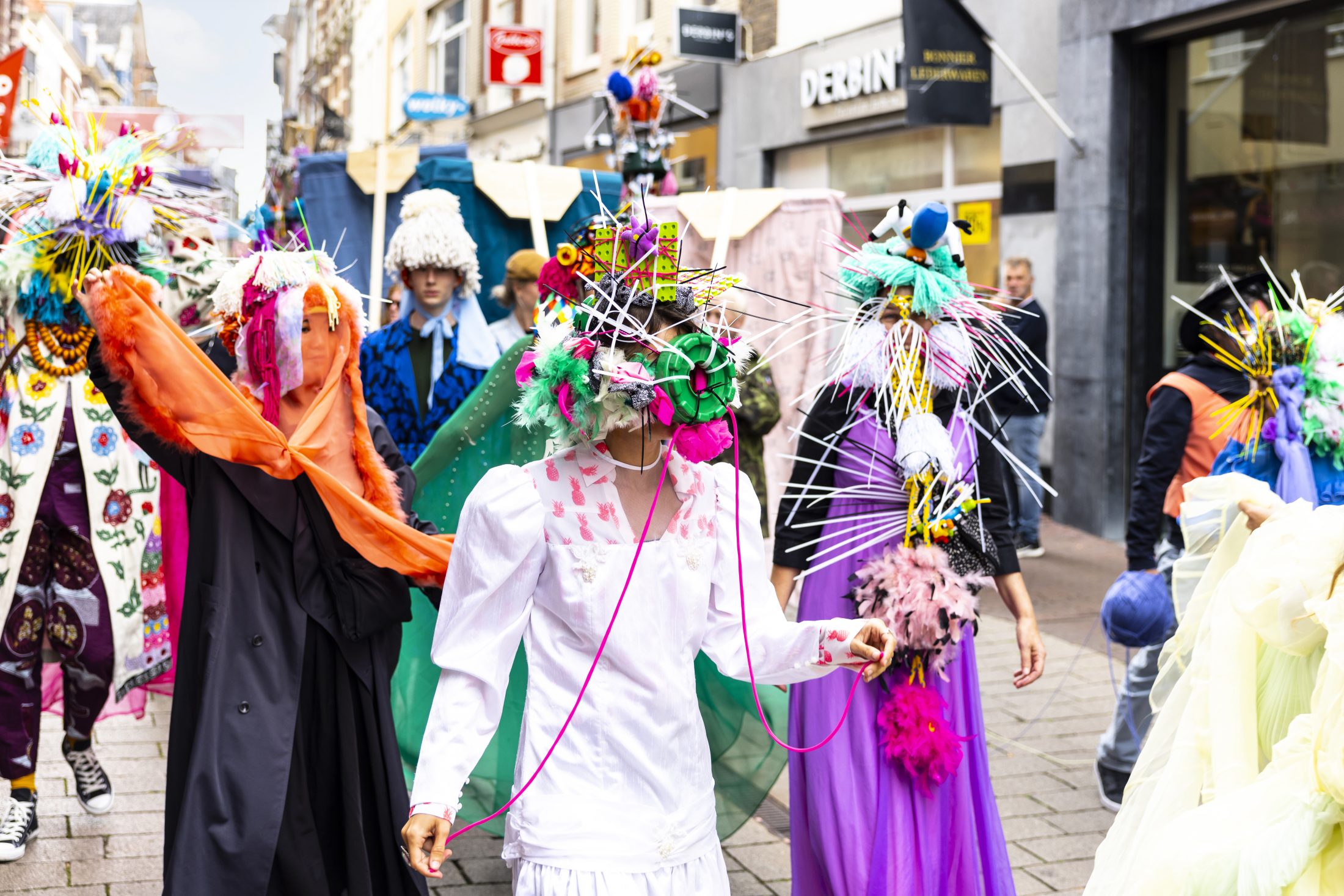
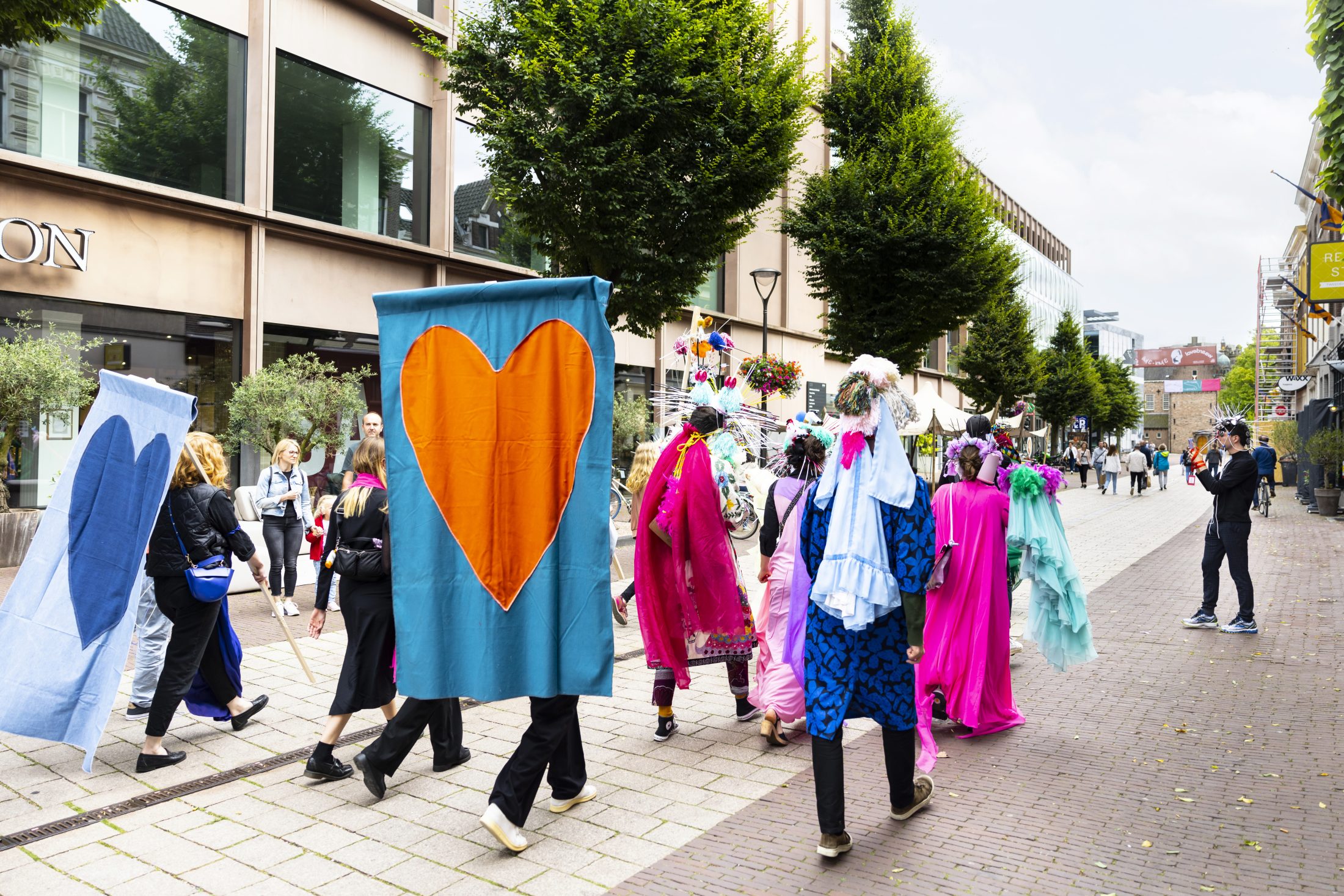
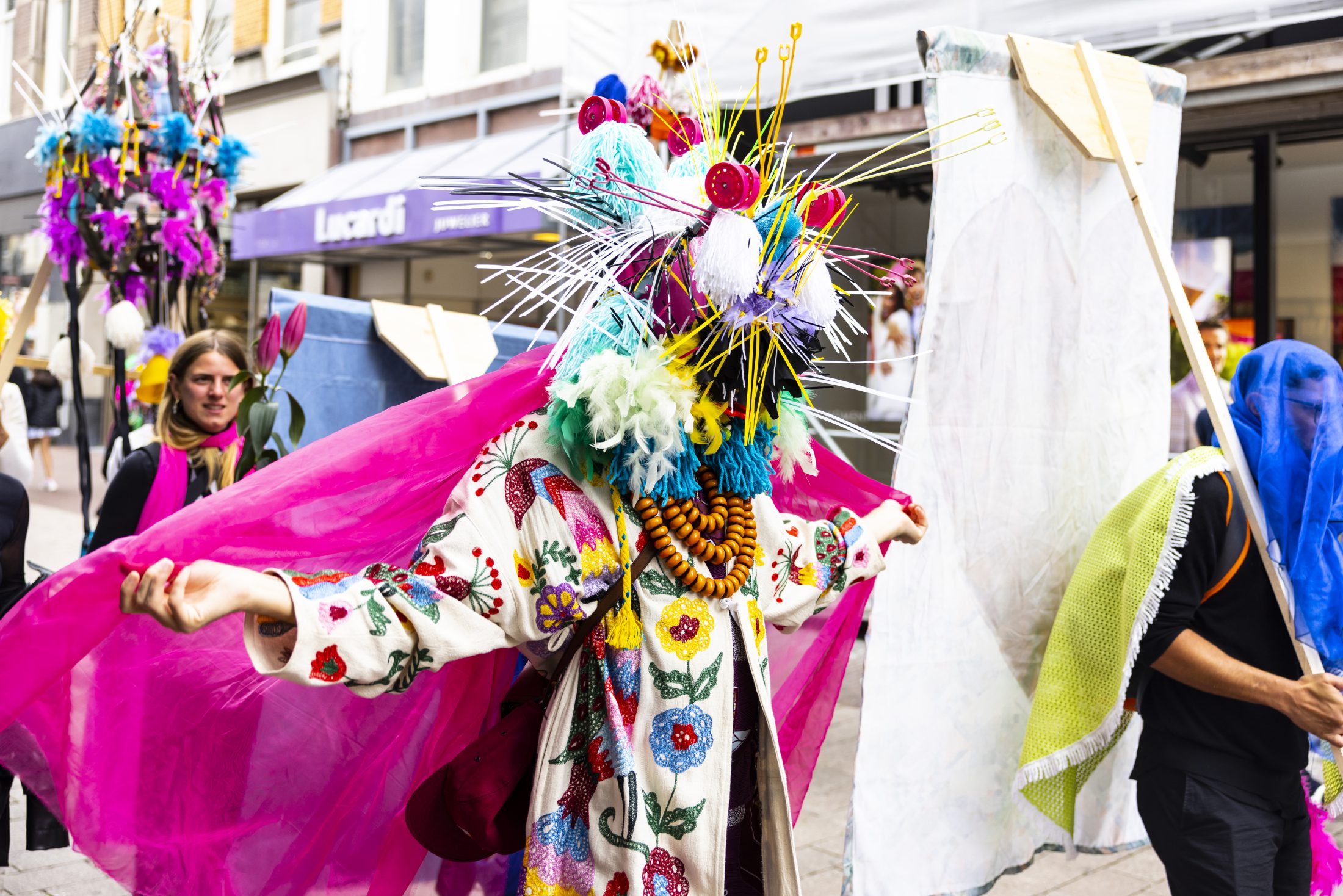
For his residency, T.VDB focused on the idea of self-care, self-love, self-acceptation and the collectivity they imply. ‘Let us create collectivity and community. Not belonging can feel like an isolating experience, but it also offers the possibility of creating an alternative, non-normative contemporary tribe, based on the concepts of caring for one another and carrying one another through life. If you view fashion as an embodied practice, as a communicative layer between the individual and society, it has the potential to be transformative.’ For the Biennale, T.VDB developed a processional parade in partnership with the local community, during three open workshop days. Students, chance visitors and invited makers worked with existing materials to create a collective processional parade on the last day of the Biennale, an ultimate celebration of the process of collective creation by means of powerful symbols and instruments of self-love as a contribution to the creation of a society that engages in self-care!